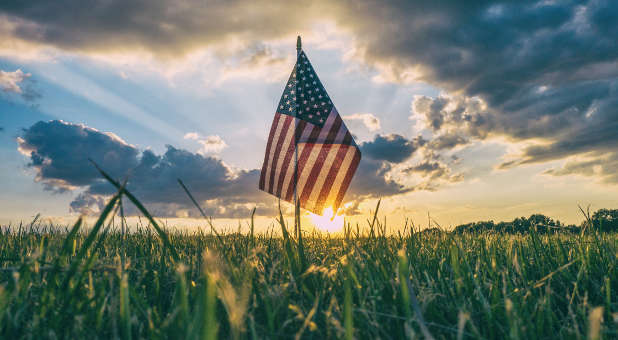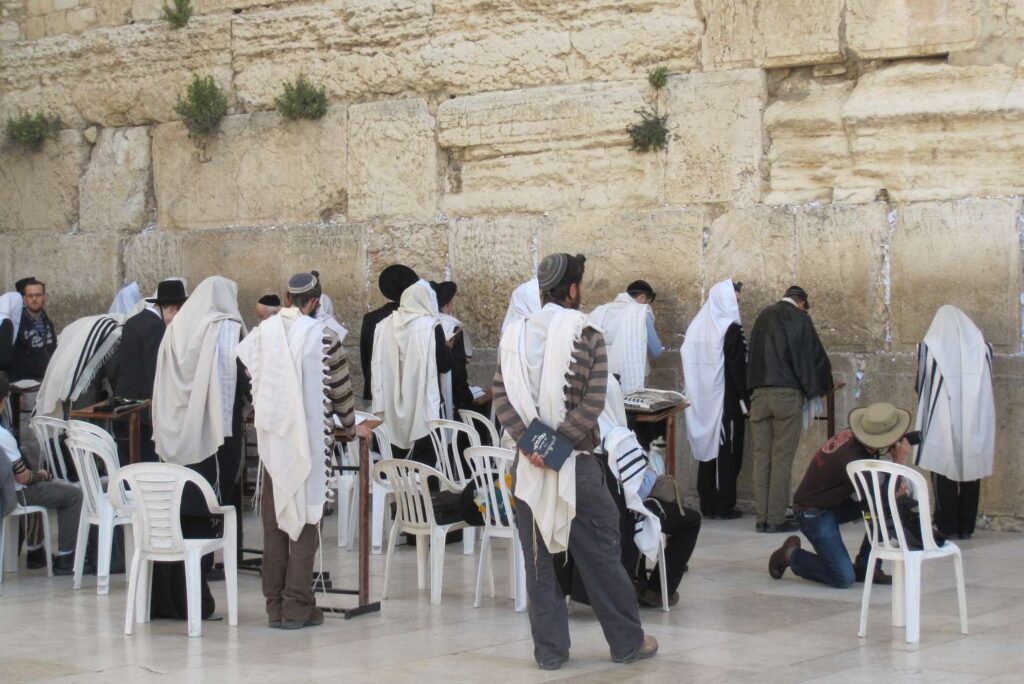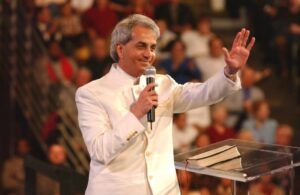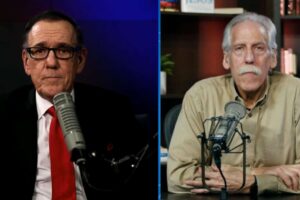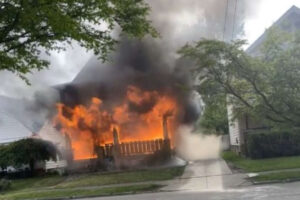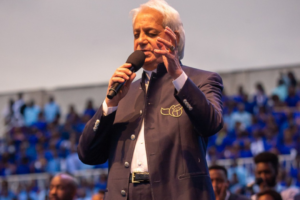The earliest immigrants to this land believed that they, as a people, had entered into a sacred covenant with God. This was clearly expressed by John Winthrop who, in 1630, led a flotilla of eleven ships with 700 passengers to New England and founded the city of Boston and the Massachusetts Bay Colony.
During their journey across the Atlantic, Winthrop formulated a sermon entitled “A Model of Christian Charity.” In it he exhorted his fellow pilgrims that “the eyes of the world are upon us” and that God would have them, in their new home, to be that “city on a hill” of which Jesus spoke, a shining light exhibiting a model of Christian living for the rest of mankind to see.
He also spoke of the seriousness of the covenant with God into which they had entered. He exhorted, “We have entered into an explicit covenant with God. We have drawn up indentures with the Almighty, wherefore if we succeed and do not let ourselves be diverted into making money, He will reward us. Whereas if we fail, if we fall to embrace this present world and prosecute our carnal intentions, the Lord will surely break out in wrath and make us know the price of the breach of such a Covenant” (Hyatt, 1726: The Year that Defined America, 28-29).
The late Harvard professor Perry Miller considered this to be America’s true founding because Winthrop’s clearly articulated vision and purpose, he believed, defined the nation. He went on to say,
A society that is both clear and articulate about its intentions is something of a rarity in modern history. Most of the nations of Europe and Asia grew up by chance and by accident either of geography or politics.
This was not the case with America. Those first immigrants to America came with a clearly articulated vision, which they recorded in written documents—documents they considered to be covenants with God.
The Mayflower Compact Was a Covenant
Ten years before Winthrop and his company arrived, the Pilgrims had landed at Cape Cod. Before disembarking, they drew up a written document patterned after the church covenants that were common among Separatist churches in England. Being part of a Separatist congregation, they were very aware of such documents, which knit the signees together in a solemn, contractual agreement with God and one another.
In the Mayflower Compact, each signee promised “solemnly and mutually in the presence of God” to “covenant together” for the better ordering and preservation of their community. This covenant also stated that their purpose in coming to the New World was to glorify God and advance the Christian faith.
The late Harvard professor, Perry Miller, said, “The Separatists aboard the Mayflower found a covenant the obvious answer to the first problem of political organization” (Hyatt, 1726: The Year that Defined America, 21).
Some have called the Mayflower Compact America’s founding document. That is going too far, but there is no question that it set the stage for succeeding communities and colonies that would base their existence on written documents—covenants—that gave recognition to God and prioritized the gospel of Jesus Christ as their reason for being.
New England Covenants With God
This idea of a social compact (covenant) with God was expressed, not only in the founding of Plymouth, Boston and Massachusetts, but also in the 1639 founding document of Connecticut entitled “The Fundamental Orders of Connecticut.” This document states,
“We, the inhabitants and residents of Windsor, Hartford and Wethersfield, knowing where a people are gathered together the word of God requires that to maintain the peace and union of such a people there ought to be an orderly and decent government established according to God … we do for ourselves and our successors enter into combination and confederation together, to maintain and preserve the liberty and purity of the gospel of our Lord Jesus Christ, which we now profess” (Hyatt, 1726: The Year that Defined America, 30-31).
With thousands of new immigrants arriving in New England and new towns springing up, there arose a felt need for some sort of centralized government to facilitate mutual defense and to arbitrate land disputes. To meet this need, the United Colonies of New England was formed, and a constitution was formulated, patterned on the idea of covenant. Dated May 19, 1643, the opening statement of the constitution expressly states why they had all come to the New World. It reads,
Whereas we all came into these parts of America with one and the same end and aim, namely to advance the kingdom of our Lord Jesus Christ and enjoy the liberties of the gospel in purity and peace (Hyatt, 1726:The Year that Defined America, 31).
The constitution provided that each colony would choose two representatives who would form a council of eight. This council of eight was invested with power to arbitrate boundary disputes, coordinate mutual defense, and facilitate mutual advice and support. It was clearly stated that this council was brought into existence for “preserving and propagating the truth and liberties of the Gospel” (Hyatt, 1726: The Year That Defined America, 31).
There is no question that this constitutional system wherein each individual colony retained its autonomy, and the powers of government were limited by the Constitution, was a forerunner of the federalist system that would be created at Philadelphia in 1776 and 1787. The United Colonies of New England clearly foreshadowed the United States of America in both its form of government and in its Christian character.
The Puritans clearly saw these written statements as covenants, not only between themselves, but also between their society and God. They believed that God dealt, not only with individuals, but also with social units, including families, churches and nations. According to Perry Miller, “The central conception in their thought is the elaborated doctrine of covenant.”
The Blessing and Responsibility of Covenant
These early immigrants saw Israel in the Old Testament as a pattern for their social covenant with God. Like Israel, they believed that if they, as a people, kept their part of the covenant, which was to walk uprightly and make His name known, they would be blessed. If, on the other hand, they lost their sense of purpose and began to live selfish and sinful lives, they would suffer God’s wrath because of their rejection of the covenant. During the voyage to New England, Winthrop warned,
“Now if the Lord shall please to bear us, and bring us in peace to the place we desire, then hath He verified this Covenant and sealed our commission … but if we fail to perform the terms of the Covenant, we shall perish out the land we are crossing the sea to possess” (Hyatt, 1726: The Year That Defined America, 32).
This social sense of responsibility to God is the reason the Puritans tended to hold one another accountable. They believed that since communities and nations cannot be rewarded in the next world, they must necessarily be rewarded in this one, according to their deeds. The sin of one or a few could, therefore, bring down God’s judgment on the entire community. This is also the reason that laws were passed outlawing adultery, fornication, profanity, drunkenness and Sabbath breaking.
Virginia Too
Although New England was where the writing of constitutions was profoundly developed, all the colonies were founded on similar social compacts with God. When the Jamestown settlers disembarked at Cape Henry, Virginia, their first act was to erect a seven-foot cross they had brought from England. They then gathered around the cross for a prayer service in which they dedicated the land of their new home to God. In his dedicatory prayer, their chaplain, Rev. Robert Hunt, declared, “From these very shores the Gospel shall go forth to not only this New World but to the entire world.”
This act was in line with the official Virginia Charter, which recognized “the Providence of Almighty God” and expressed the desire that the establishment of the colony would “tend to the glory of His Divine Majesty.” This document also expressly stated that the purpose of the colony was to propagate the “Christian religion to such people as yet live in darkness and miserable ignorance of the true knowledge and worship of God.”
There are amazing similarities between the Virginia Charter, the Mayflower Compact and other founding documents of New England. This led Perry Miller to suggest that Virginia and New England were not that different. He pointed out that both communities were children of the Reformation, “and what we consider distinctively Puritan was really the spirit of the times.”
There is thus no question that these early social compacts, or covenants, were precursors to the founding documents of the United States of America. Gary Amos and Richard Gardiner are correct to say, “The early New England constitutions were covenants. These covenants clearly foreshadowed the United States Constitution” (Hyatt, 1726: The Year that Defined America, 33).
… Will we renew the American covenant? It begins with God’s people taking seriously their role in the health of a nation as expressed in 2 Chronicles 7:14: “if My people, who are called by My name, will humble themselves and pray, and seek My face and turn from their wicked ways, then I will hear from heaven, and will forgive their sin and will heal their land.” {eoa}
This article is derived from Dr. Eddie Hyatt’s latest book, 1726: The Year that Defined America, available from Amazon and his website at eddiehyatt.com. He is also the founder of the 1726 Project, whose purpose is to educate concerning the nation’s birth out of a great, spiritual awakening and to call American Christians to pray for another such Awakening.
For the rest of this article, visit biblicalawakeningblogspot.com.
See an error in this article?
To contact us or to submit an article


